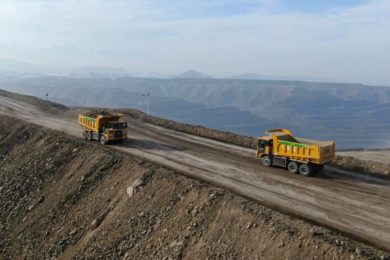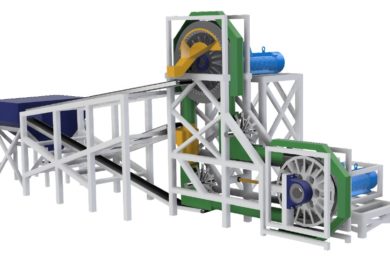Reuters is currently holding its Global Mining and Steel Summit with chief executives and other leaders in mining and metals companies and organisations visit the Reuters bureau in New York, London and Sydney to discuss the outlook for the sector in a series of exclusives interviews. Stories are posted on www.reuters.com/summits.
Stories from the first day of the Summit include the thoughts that government infrastructure spending will drive a rebound in metals prices, while gold may reach $2,000/oz in the next year if the dollar falls, according to an executive with UK fund house Schroders. “The potential for very sharp price rises in industrial metals this year is very good,” emerging market debt and commodities product manager Christopher Wyke told Reuters. “We think in infrastructure the cutbacks will be very limited. When a recession happens, governments in the US and elsewhere accelerate infrastructure spending.” He said that despite the global economic downturn, Asia retains its appetite for infrastructure spending, which will support prices of metals such as copper and zinc. Prices of the two metals have fallen around 58% and 54% respectively from a year earlier.
Global demand for steel is down around 20% at the moment, but with destocking nearing an end, the industry is likely to see some signs of recovery by the end of the year. “I would be very surprised if there were not green shoots out there by the end of the year,” Ian Christmas, Director General of the World Steel Association said. “Stocks are very low and we see destocking coming to an end,” Christmas told Reuters. “By the end of this year, I’m sure some steel companies will say 2010 is looking much better than we thought this time last year.”
Chinese and Indian firms are increasingly snapping up mining assets as the credit crisis sidelines Western rivals, according to a leading sector investment banker. The turmoil will spark consolidation in areas such as gold, emerging-market steelmakers, and junior miners, said Richard Horrocks-Taylor of RBC Capital Markets, though the era of huge cash-funded mergers and acquisitions (M&A) is over. Until about a year ago bidders from Asia’s two emerging giants economies were often too slow, or too price-conscious, to win auctions, said Horrocks-Taylor, a Managing Director for global metals and mining at the Canadian bank.
Goldcorp could beat its 2009 cost guidance due to the recent declines in the Canadian dollar and the Mexican peso, and should see widening margins ahead as energy and equipment costs ease while gold prices strengthen, its CEO said. The company will resist the recent trend in the sector to issue equity, and while it is on the lookout for takeovers, valuations for quality development properties have become more expensive in the new year, Chuck Jeannes said. “There’s always deals out there that make sense but I wouldn’t say there are screaming bargains out there right now,” said Jeannes, who took over as CEO of the gold miner at the beginning of the year.
Harmony Gold Mining’s Chief Executive Graham Briggs said tumbling energy, raw material and equipment costs due to the credit crunch had yet to have a dramatic impact on that company’s bottom line. Briggs, said the costs had not been coming down as expected, and it had been quite a lot of hard work to get much benefit. “There has been a little bit of movement, but it really doesn’t affect the bottom line dramatically. So although steel prices and some other costs have come down, they have not come down to the extent we were hoping,” he said. “But they are not going up as they were before which is the good news,” Briggs added.
A different view on steel, with more layoffs among North American unionised workers, came from a top official from the United Steelworkers (USW) union said. “We’ll probably see a reduction of 10-15% of our workers globally (from the beginning of the crisis),” Ken Neumann, National Director of the USW’s Canadian branch, told the Reuters summit in New York. “I don’t think we’re at the bottom.”








